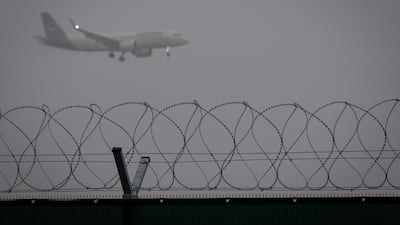Germany has deported hundreds of Afghan and Syrian asylum seekers this year and chartered five flights to return people to Turkey, according to newly released documents.
More than 650 Afghans and 400 Syrians including dozens of women and children were expelled in the first half of 2023. They were typically transferred to states on the EU border after Germany rejected their claim.
Hundreds of migrants from Turkey and Algeria, and dozens from Pakistan, Tunisia, Morocco and Iraq, were returned straight to their home countries.
Ministers spent €71,000 ($77,000) on one charter flight taking three people from Berlin to Lebanon. Another plane took off for Baghdad carrying just one person.
Five mini charter flights deported a total of 19 people to Turkey. Algerian security forces were involved in escorting almost 200 people back to the North African country.
The details emerged in documents handed to MPs after left-wing parliamentarians raised concerns about the treatment of asylum seekers.
Officials refused to identify the airlines involved in deportations, fearing public criticism might make them withdraw their services.
This would "make deportations more difficult or even impossible", Interior Ministry officials wrote in the 41 pages of documents released to parliament.
Deportations to Afghanistan have been suspended since August 2021, shortly before the Taliban returned to power. Returns to Syria have not taken place since 2012.
However, ministers are under pressure to ease the burden on German asylum facilities as local authorities are stretched by the impact of the war in Ukraine.
Unicef's German office said on Tuesday that some young refugees were spending months or even years in accommodation "not suitable for children".

The government recently proposed lengthening immigration detention from 10 to 28 days and widening police search powers to speed up deportations.
People deported this year included 74 women from Syria and 62 from Afghanistan. Returns of people aged under 18 included 53 Afghans and 52 Syrians.
Most Afghans and Syrians were removed under the so-called Dublin regulation, which calls on them to seek asylum in the country where they first arrived.
Thousands more Afghans are in line for deportation after having asylum claims rejected, although some have a temporary 'toleration' permit to stay in Germany.
Germany has deported more than 800 people to Austria – which is also looking to cut asylum numbers – under the Dublin rules.
Hundreds of people who travelled through south-eastern Europe were deported to non-EU members Georgia, North Macedonia and Albania.


